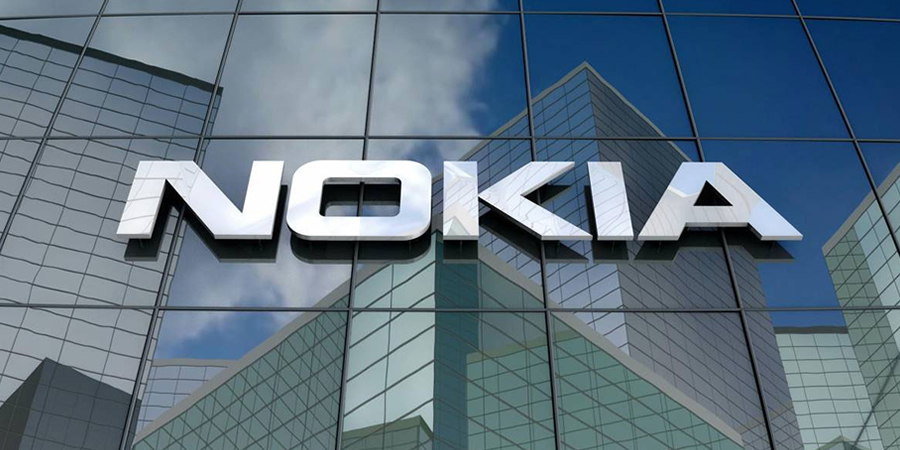Nokia today announced its WaveFabric Elements portfolio of photonic chips, devices and subsystems, including its fifth generation coherent digital signal processor family, the Photonic Service Engine V (PSE-V).
The explosion in video and mobile bandwidth demand over the past decade has been met through the continual advancement of optical and silicon technology. But as fundamental limits of transmission capacity and processing power approach, network operators will need new ways to continue to scale their networks to meet the surging demands of 5G and cloud networking, while containing cost. Key to this transition is 400 Gigabit Ethernet (400G) technology.
Set to become the pervasive network interface across IP, optical and data center networks, 400G marks the first common data rate since the introduction of 100G approximately 10 years ago.
As the foundational technology for high bandwidth transport, the critical task of electro-optics in the coming years will be to transport 400G services at the lowest cost across a wide range of networking applications, each with distinct size, power, and performance requirements.
Nokia’s WaveFabric Elements portfolio combines digital signal processing (DSP) and optics technologies focused on emerging end-to-end 400G applications, allowing Nokia to optimize the entire electro-optic engine that powers today’s networks and the transformational upgrades to come. This high degree of vertical integration ensures that Nokia’s optical solutions will meet the unique economic and technical requirements of data center, metro, long haul, and subsea networks. Nokia’s fifth generation coherent DSP family, comprising the high-performance Nokia PSE-Vs (super coherent) and the low power PSE-Vc (compact), continues Nokia’s history of developing multiple DSPs optimized for different optical networking applications, form factors, and platforms. The new DSPs are complemented by the CSTAR portfolio of coherent optical engines brought to Nokia via its recent acquisition of Elenion Technologies, a pioneer in silicon photonics. A new family of pluggable transceiver modules allows Nokia to address their critical and expanding role in data center, IP and optical networks, as well as emerging markets and applications highly dependent upon low-cost optical connectivity, such as access and mobile networking.
Sam Bucci, Head of Optical Networks at Nokia, said, "Networks are truly at an inflection point, and 400G will be a catalyst for a significant transformation. With our WaveFabric Elements portfolio, Nokia is committed to supplying the 400G optical ecosystem with components, subsystems and design services, as well as continuing to build the highest performing optical transport solutions for the 400G era and beyond."
Scott Wilkinson, Lead Analyst at Cignal AI, said, "Nokia is one of a select few companies with the experience of building five generations of DSPs. The company’s expertise in vertical integration is a key competitive advantage in the battle for next generation coherent solutions. The focus on 400G transport in the PSE-V is well-positioned for market needs."
The CSTAR family of optical engines is currently shipping to customers. PSE-V-based platforms and pluggables will be available beginning in Q4 2020.
The Nokia WaveFabric Elements portfolio addresses the demanding power, performance, and cost-per-bit requirements of 400G networking across data center, metro, core and subsea applications.
The PSE-Vs, which can run up to 90 Gbaud, employs the second generation of the industry’s only field-proven implementation of Nokia Bell Labs-pioneered probabilistic constellation shaping (PCS). Combining refined algorithms with the enhanced capabilities of a new generation of silicon, it is capable of transporting up to 800G, while providing 60% greater reach, 40% lower power per bit, and 15% greater spectral efficiency than previous DSP generations.
The PSE-Vc enables programmable capacity from 100G to 400G with metro to long haul capability. Its extremely low power enables integration into a variety of pluggable transceiver modules.
The Nokia CSTAR family of optical engines leverages state-of-the-art silicon photonics and packaging technology, and addresses applications, including intra-data center, metro DCI and long-reach optical transport. Paired with PSE-V DSPs within Nokia platforms, they are also available independently to industry partners for integration into pluggable transceiver modules available to the broader market.
Nokia’s 400G pluggable coherent transceiver modules are optimized to address a range of platforms and applications, including Nokia’s broad portfolio of optical transport, IP, fixed access and mobile solutions. The portfolio includes 400G ZR/ZR+ capabilities in the QSFP-DD form-factor and a higher performance, more feature rich 400G multi-haul variant in a CFP2-DCO form-factor.










